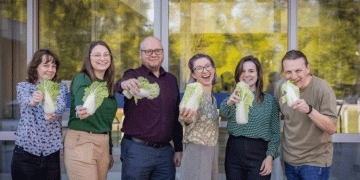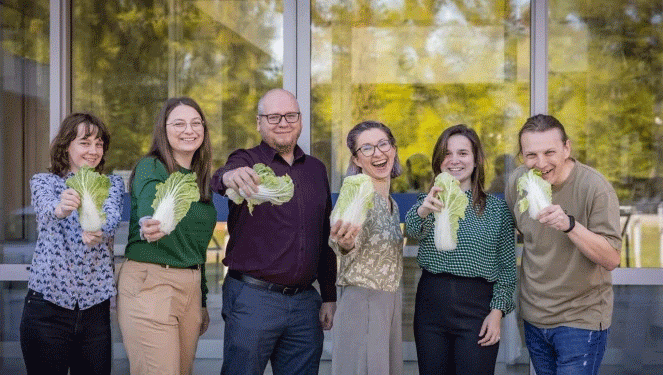In a groundbreaking development that bridges agriculture, materials science, and electronics, an interdisciplinary research team from Gdańsk University of Technology and the Polish Academy of Sciences has transformed a common agricultural product—Chinese cabbage—into a sophisticated sensing material. This innovation offers a novel solution to two pressing global issues: the management of organic waste and the need for sustainable, low-cost technological materials.
The world generates an estimated 1.3 billion tons of food waste annually, according to the UN Food and Agriculture Organization (FAO), presenting a massive environmental and economic challenge. The Polish team addressed this by employing a process called pyrolysis—the thermal decomposition of material in an inert atmosphere—to upcycle cabbage leaves. The research, led by Professor Katarzyna Siuzdak, focused on enriching the cabbage leaves with copper salts before pyrolysis. This critical step resulted in a highly conductive carbon-copper powder.
This carbonaceous material was then used to modify a glassy carbon electrode, creating a sensor specifically tuned for the electrochemical detection of ascorbic acid, commonly known as vitamin C. As detailed in their publication in the high-impact journal Sustainable Materials and Technologies, the sensor demonstrated excellent efficacy. Doctoral student Angelika Łepek explained the process: the team was able to precisely determine vitamin C concentrations in fruit juices, showcasing a direct application for quality control in the food and beverage industry.
The implications for the agricultural sector are profound. This technology could lead to the development of:
- Rapid, On-Site Quality Testing: Farmers and food processors could use sensors derived from crop waste to instantly analyze the nutritional content of produce, optimizing harvest timing and post-harvest handling.
- Waste Valorization: Agricultural waste streams, from unsold produce to processing byproducts, can be transformed from a cost center into a source of high-value materials, creating new revenue streams and promoting a circular economy.
- Sustainable Precision Agriculture: This research aligns with the growing demand for green technologies, reducing reliance on synthetic or non-renewable materials for sensor manufacturing.
The team has already filed a patent application for the process and is now looking toward the future. Professor Jacek Ryl, a supervisor of the project, stated that the next phase involves incorporating the carbon-copper powder into a polymer matrix to enable 3D printing of electrodes. This advancement could democratize access to customized, inexpensive sensors for a wide range of applications, from monitoring soil and plant health to ensuring food quality throughout the supply chain.
The transformation of Chinese cabbage into a functional sensor material is more than a laboratory curiosity; it is a testament to the untapped potential within agricultural systems. It demonstrates how interdisciplinary research can convert a waste problem into a technological opportunity, creating sustainable solutions that benefit both the economy and the environment. For agronomists and food producers, this pioneering work opens a new frontier where crop value is extended beyond nutrition into the realm of advanced materials and precision sensing, fundamentally redefining what constitutes an agricultural product.































